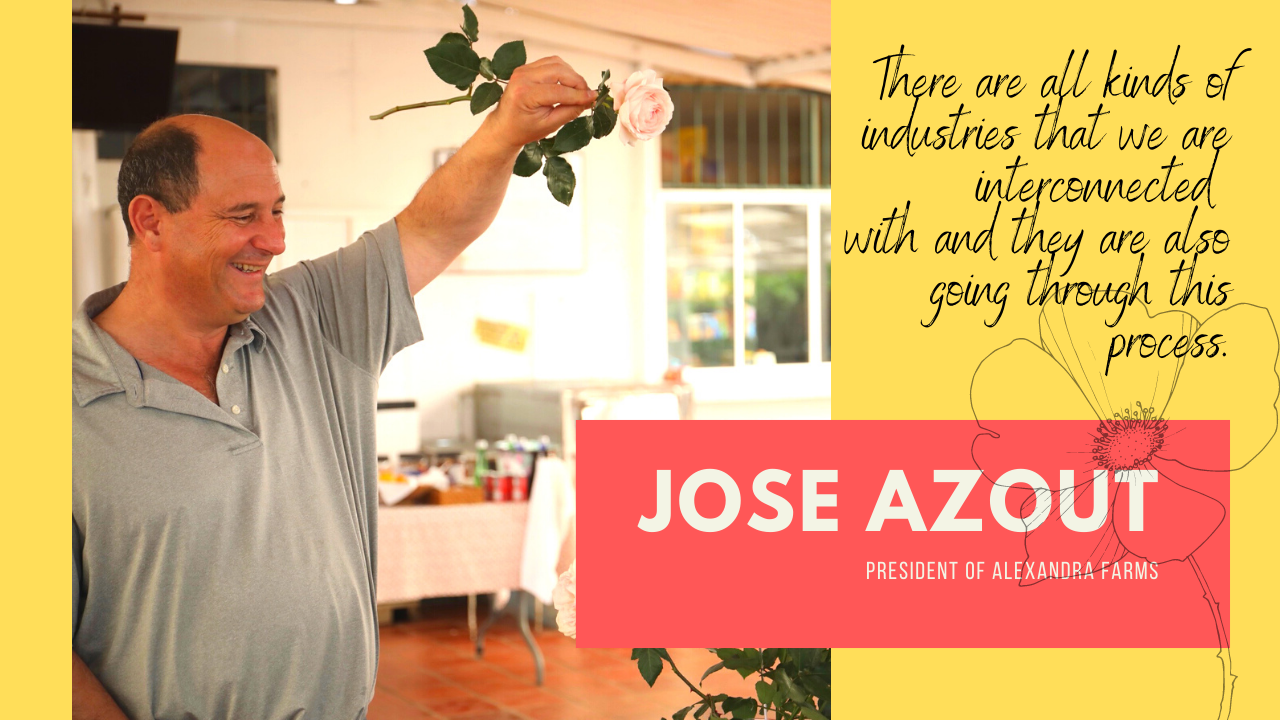
Inspiration at the EMC Go Live Event
Jun 23, 2021Alexandra Farms, beyond all its roses
Jose Azout: "Achieving great results is all about cooperation and adaptability."
When designers hear the name Alexandra Farms we instantly think of the gorgeous garden roses they provide, which are always a great source of inspiration when it comes to design, right? But what if we look beyond all its beautiful roses and get inspired from the work they actually do to provide us these amazing product? What if we search for inspiration not only in the flowers themselves, but in the business approach, the care for people, the way Alexandra Farms tackled all of the challenges of these strange and unprecedented times?
At EMC we encourage florists and designers to truly step out of their bubble, to focus on all the aspects of the floral industry, as the true path to being successful, at any level one desires, stands in collaboration, exchange of information and integration. We have to start thinking of creativity from a different perspective and approach this metier as a part of a bigger picture, which is called floral industry.
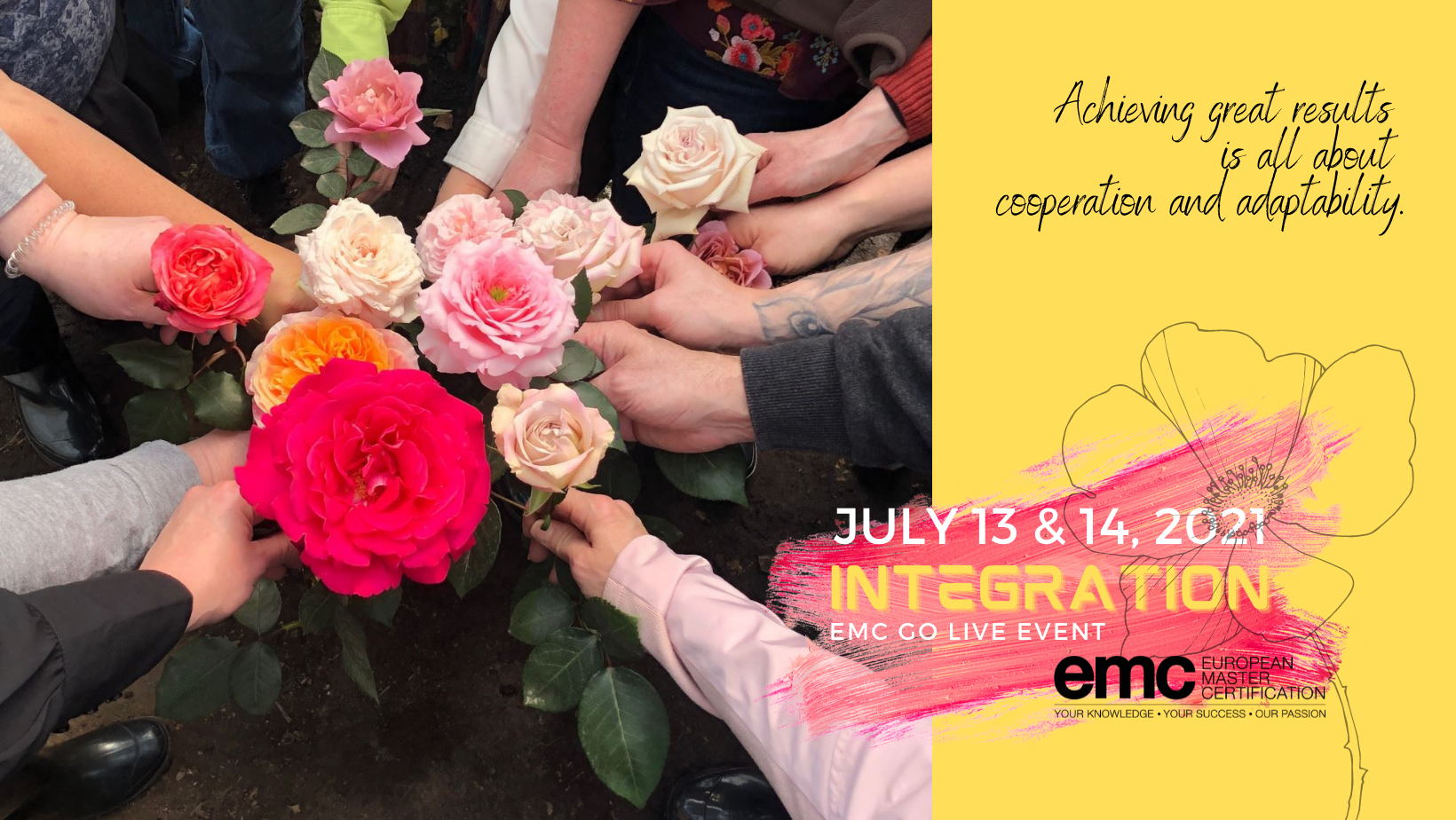
Jose "Joey" Azout has been working int he industry for over 25 years, and we don't mean just any work. His experience is tremendous and his passion for flowers and people is his drive. He started out as sales manager of a small farm in Bogotá called and went on to start Maxima Farms in Miami. Joey then worked for Gerald Stevens, Dole Fresh Flowers and the Delaware Valley Floral Group. At the latter he became president of Transflora, a traditional importer of fresh cut flowers and Flower Transfer, a customs brokerage and handling business. Now, he is the president of Alexandra Farms, a boutique grower specialising in nostalgic, romantic, fresh cut garden roses, located in the incredibly fertile savanna of Bogotá, high in the Andes Mountains of Colombia.
With that background and considering the long term collaborative relation between European Master Certification and Alexandra Farms, we have invited Joey to be part of the "Where do we go now in our floral industry" panel discussion at the upcoming EMC Go Live Event as well as for an interview for our blog.
***
How to best assess today's reality in order to better create the future? How do you envision future strategies in today’s realities?
I think we can talk about 3 periods: "before", "during" and "after" Covid, but the last one is divided in two parts. It's not just "after Covid", it's the transition between to the new future,. This is what we are going through now and this transition is a complicated one, because there are countries that are coping well with this entire situation, being very close to no longer having applications for quarantine, some getting herd immunity and evolving well in terms of vaccination, but on the other hand, there are countries that are just starting to see a huge exponential increase in the virus, such as India and Brazil. In this transition period, as those countries come along, we hope that it will not be long before we see a lot of things trying to catch up.
Currently, in the U.S. we see a shortage of flowers, because these are the consequences of Covid. When this pandemic started, we did not expect to sell our flowers soon and we certainly had to reduce our costs. The business went down 20% and we were thinking that it would be years before we would get out of this COVID situation. Like many other people, we began to focus on the core of our business and stopped doing anything else besides that.
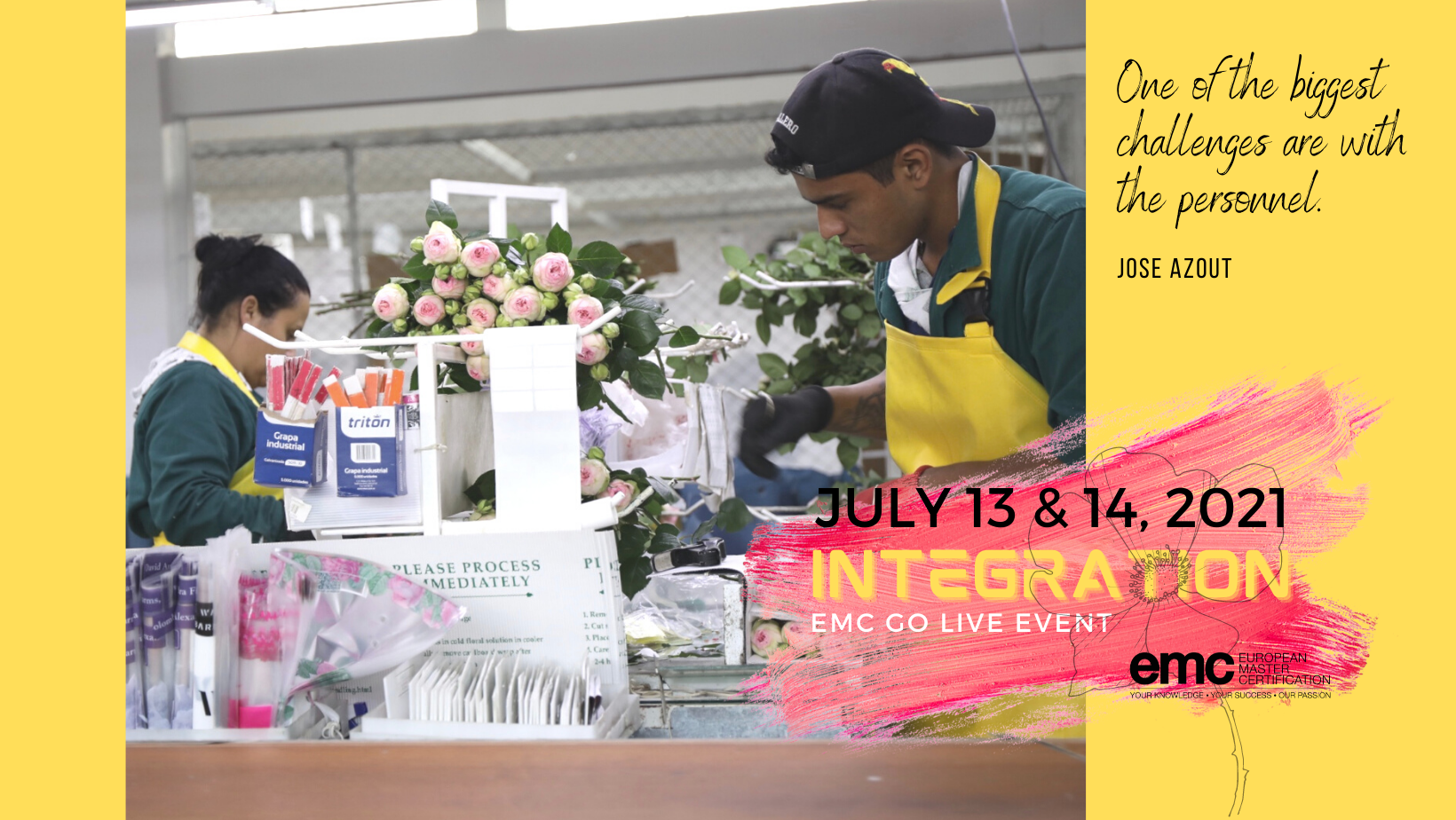
So right now, in this time of transition, people are trying to get back to where they were before the pandemic started, but we're still not there yet. There are all kinds of industries that we are interconnected with and they are also going through this process. This affects us in various ways and I can give you just a few examples: we have a shortage of lumber and so there are no pallets, there is a demand for houses in warm places, but an excessive demand for homes in cold places, offices are being rented only in warm places, because no one ever wants to work from home. There's a big transition going on and some of that is positive because people are getting used to having flowers in their home and I hope that this doesn't go away quickly. There will also be a lot of excess offices in major cities, and so there will be a lot more demand for flowers. Some things will survive post ‘’the transition period’’ some things might not. Hopefully all of the supply chain disruptions will return to normal soon, but hopefully the appetite for flowers will continue.
Right now we're living in kind of an upside down world. There's tremendous demand for everything: for travel, for hotels, for restaurants but there are not enough people to work in those fields and it's going to be a six months or a year transition where things aren't normal. Even though things are moving for Alexandra Farms and we have sales, which is very important, there are still a lot of disruptions that we have to face each day.
How do you approach challenges in your business and what are the most important ones you have had to overcome after the pandemic has literally stopped the world?
One of the biggest challenges are with the personnel. Even still today we have all sorts of Covid requirements at the farm. Frequent hand washing, wearing the mask, respecting social distancing, this are a few things that we must respect. The big problem is that when one person in a pod becomes infected, then the whole pod must be quarantined. If somebody at the post-harvest gets sick, than five or six people have to go home for a couple of weeks and then we have to quickly figure out who is going to take care of the flowers. All of these Covid issues create big struggles with the staff.
Besides that, in Columbia the major cities were blocked by the unions protesting against a new tax reform and we could not reach the farm. A couple weeks ago our employees could not get to the farm and the flowers could not get to the airport so we pretty much lost a week of flowers and a week of work. Imagine all the consequences this had. We also have problems with getting boxes to pack our flowers, because the factory we work with is in Cali, and the trucks can't transit the roads there yet because they are blocked. There are still tremendous problems in some cities in Colombia. So, we have delays in getting our boxes to ship the flowers out and if this situation lasts another couple of weeks, we will have to find another solution for that.
Another big challenge is the whole logistics issue. It's hard to get transportation out because the planes are busy taking vaccines to Brazil and India and the flower transportation is not a priority at the moment.
And something else that I can think about in terms of challenges is the sourcing of a vegetal material. Since everybody decreased the amount of hectares they had planted, the suppliers of seeds, cuttings, or rooted cuttings reduced their capacity as well and now that we are all trying to grow again, they don't have enough vegetal material to provide us. All the nurseries that I have come in contact with have no availability until next year.
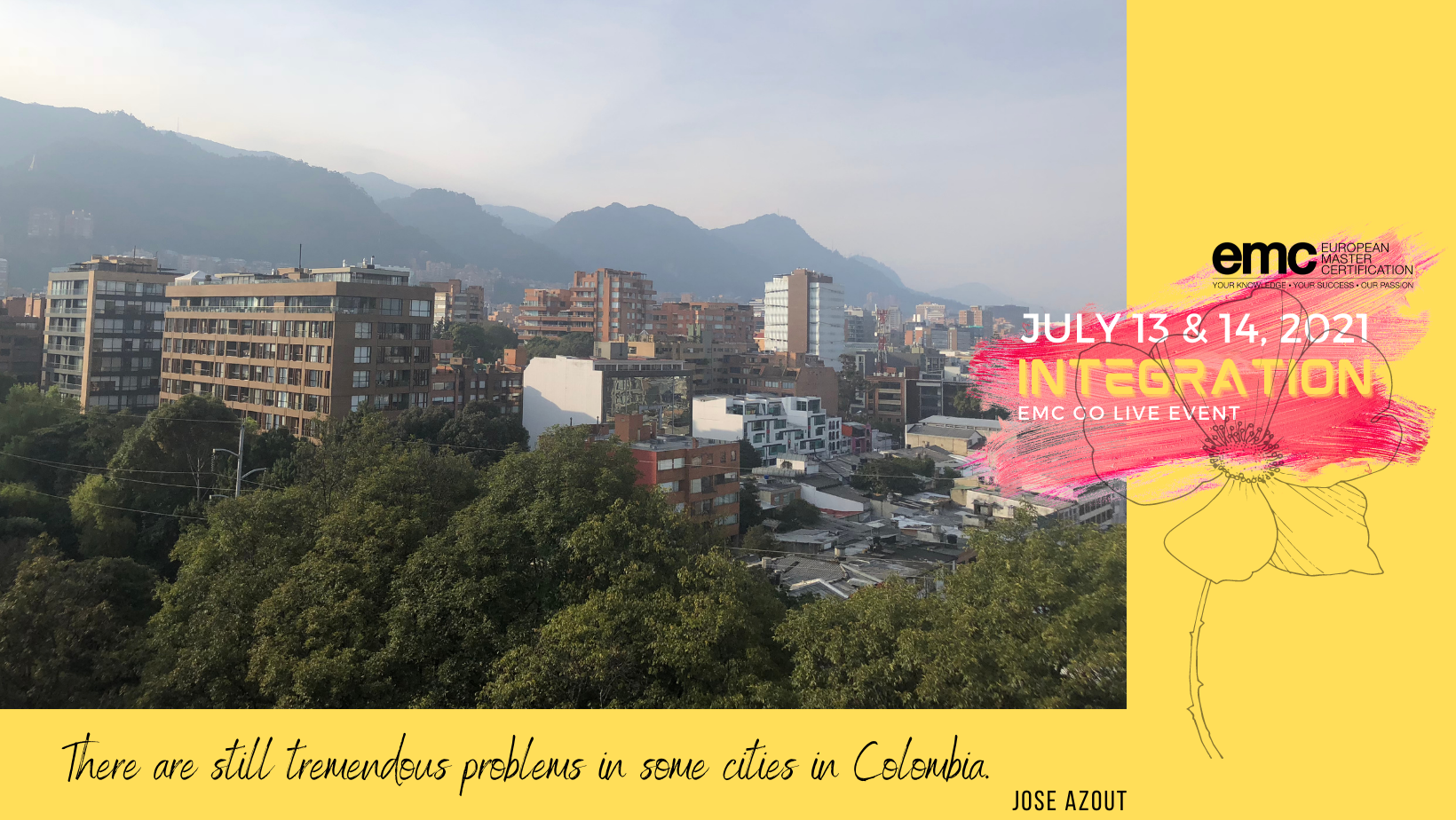
So we have Covid, we have violence on the streets, roads that are still blocked, there is a scarcity of vegetal material… so imagine… instead of focusing on our business and our customers we have to do so many other things right now. It's tough! There are all kinds of disruptions going on and it's going to be a while before everything settles back down.
How is it possible to turn a negative experience, such as was the one of Covid, into a positive outcome?
First we are much more focused now on our core business, so a lot of the projects that we had that were related to roses, are no longer there. We have become more efficient and effective. We had to work with less people to handle the same hectares or less hectares, so we had to figure out ways of automating or doing things better.
Then there's this big shift in people's psychology. People are more appreciating life and that they are alive, one of the reasons being because so many people have died this past year.
Fortunately for us we have technology available, which brings many benefits. Even with this social distancing and all these travel restrictions, we can use technology to stay in touch with people. Like most companies, we do a lot more Zoom meetings and have a lot more Zoom conversations. I really don't talk to anyone in the company on the phone anymore. I talk to them virtually, with a screen and this is also what I try to do with my clients.
During this pandemic, a lot of designers have tried to integrate technology into their job as this wasn't really happening that much before. Now we see a lot of movement in that area. The educational part of the technology has advanced so much during COVID and I hope that this remains.
There is a lot of information on care and handling, on variety availability, on the scientific part of the design work. Designers are very creative and their design is beautiful, but a lot of the science part of it: taking care of the flowers properly, knowing which ones are available, when, knowing which are the best ones on different situations, that whole education part is also very important.
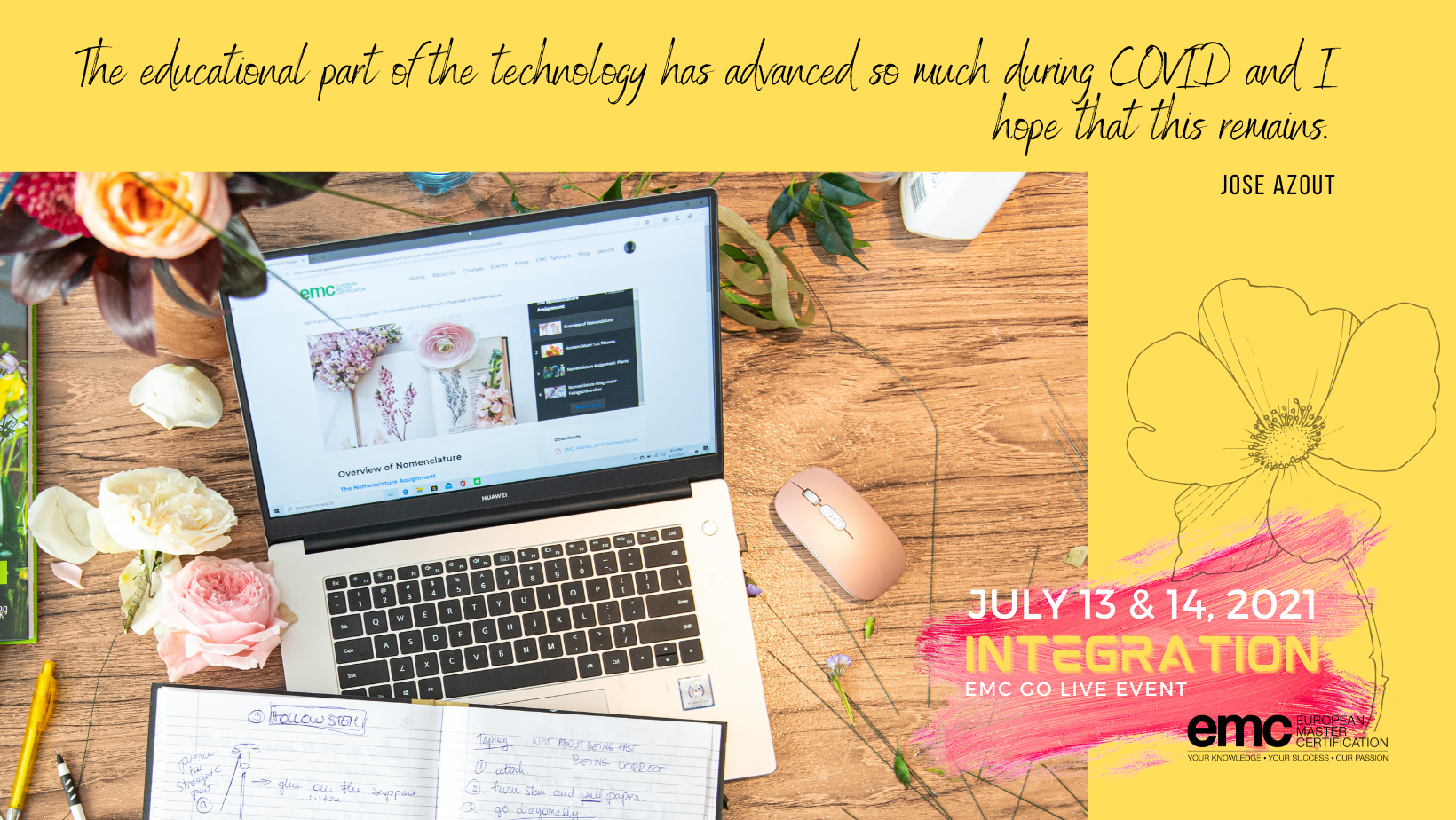
I think that with the technology we are being able to participate more in educational courses and lectures because they are less expensive, they are more available, they are more convenient, and I really hope that this part continues on.
How do you see INTEGRATION as a concept influencing the future of the creative floral industry?
I think one of the lessons we've all learned is to be more flexible and adaptable. So if we couldn't get blue boxes, we'd go with the orange ones, and if we couldn't get a certain fertiliser, we should find another one. I think that it goes all across the supply chain to where the florist might not get that particular variety, on that day they need it and they will have to be flexible and adapt. Unfortunately, this will continue for a while because there is a shortage and there are also logistical problems as I mentioned before.
I think everyone will have to be flexible as things return to normal. I also think that there is a good part to this situation, because it makes people appreciate all the things they have at their disposal and also forces them to work more closely with their suppliers.
In these difficult times, it is a matter of working together, rather than being against each other. Creating good relationships between florists and suppliers allows us to work together to make things happen and get the botanical materials that customers need in a cost-effective way. So, we work closely with our customers on our availability and what they expect us to have. There's a lot more information. It isn't so much an auction where they can buy what is available and then everybody goes home. No! In Columbia we are lucky to have people that we can tell what is available and what is not, what are we going to promote the next week, and if all this goes down the distribution chain, I think this information is very useful to the florists, designers and the end consumers.
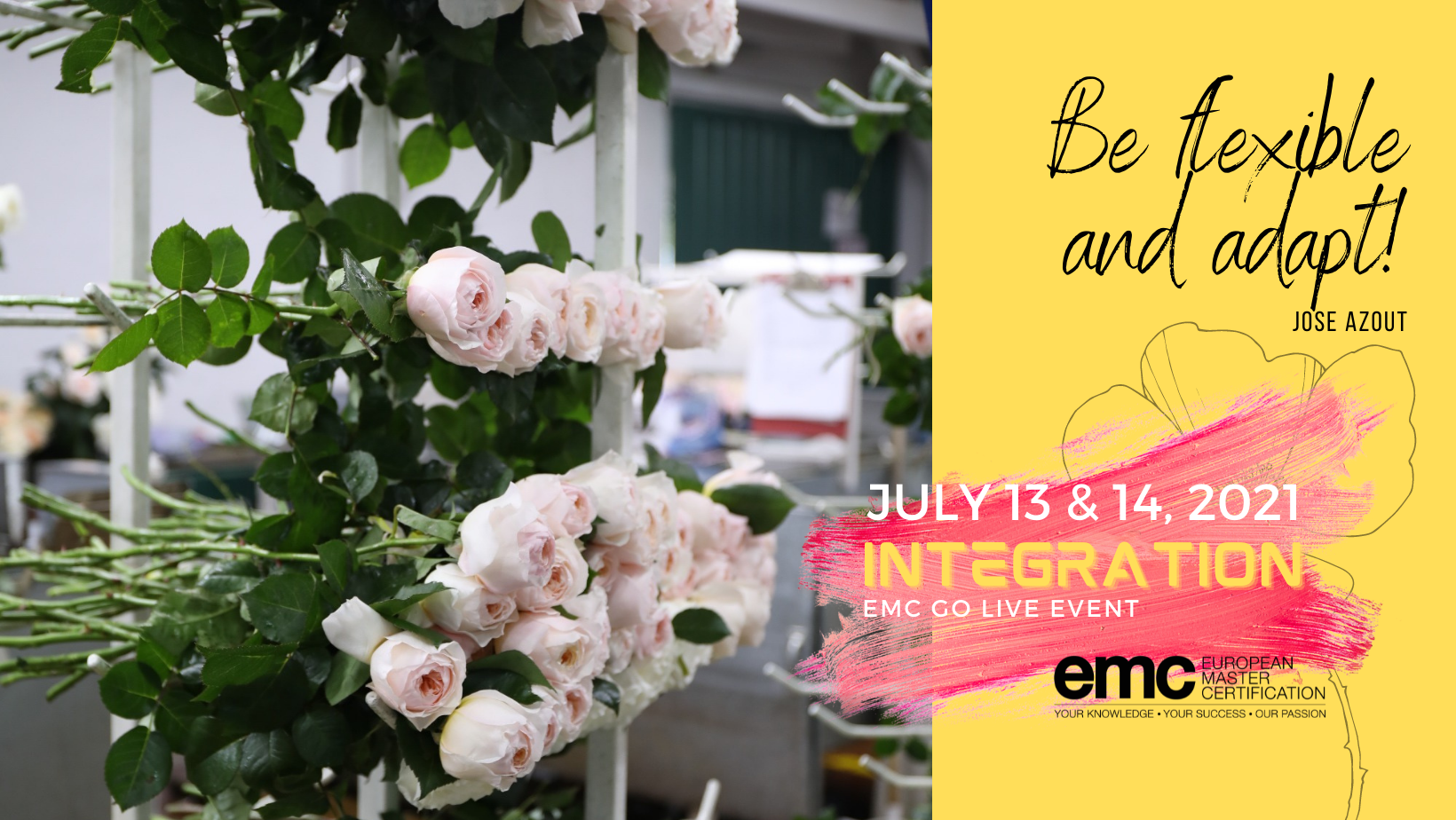
If you could have given one piece of advice to the person you were before the pandemic started, what would have been the most valuable?
Be flexible and adapt! Work close with your suppliers. Achieving great results is all about cooperation and adaptability.
***
Curios about the EMC Go Live Event? You should be!
Don't miss a beat!
New blogs, course offerings and what we are up to delivered to your inbox!
We hate SPAM. We will never sell your information, for any reason.

